“I’m Just Saying”: The Social Apocalypse Triggered by 15 Phrases That Ruined Civilization
The awkward verbal habits that tanked marriages, meetings, and modern manners—one cringe comment at a time.
By Ellis “Mumbler” McGraw — Social Skills Editor Emeritus, SpinTaxi Magazine (Est. 1947)
We live in a society. At least we used to—until it collapsed under the weight of a thousand uncomfortable phrases mumbled over lukewarm coffee and failed Tinder dates. While scientists once feared AI or nuclear war might be our undoing, new research from the prestigious University of People-Who-Make-Everything-Weird has confirmed the real culprit: socially awkward people and the things they say to you at work, weddings, and Walmart.
According to a 2025 study titled “Verbal Flatulence in Modern Interpersonal Contexts,” 73% of all emotional breakdowns are preceded by someone saying “I’m just being honest.” Another 19% begin with, “No offense, but…” followed by something so offensive it requires three therapists and a 10-day silent retreat to undo.
We here at SpinTaxi Magazine have compiled the top 15 most socially disastrous phrases—words that transform mild-mannered humans into conversational dumpster fires. We provide this list not to shame, but to prepare. If you hear one of these in the wild, run. Or better yet, fake a phone call. Say you’ve just been called in to emergency cat surgery. No one questions cat emergencies.
Let’s dive into these weaponized word-bombs.
“I Know, Right?”
Translation: I haven’t listened to a word you’ve said, but I’d like to sound like I did.
This phrase is the Swiss Army knife of bad listeners. It’s a verbal screensaver. A sound people emit when they want to seem interested while checking their phone under the table.
Dr. Ivy Cringe, a behavioral psychologist from Fresno Community College, notes, “Saying ‘I know, right?’ during a serious conversation is like honking at a funeral.”
Case Study: When a woman at a support group for divorcees shared, “He left me for a pastry chef,” her friend replied, “I know, right?” The group’s silence was broken only by the sound of someone choking on a biscotti.
“It’s Not My Fault”
Ah yes, the rallying cry of toddlers and tech CEOs alike.
Context: Used to deny any and all responsibility, even in situations where the speaker is literally holding the broken lamp.
Historical Use: First recorded in 1986, when a man named Gerald accidentally ran over his neighbor’s mailbox and claimed it “jumped into the street like a suicidal cast member from Cats.”
Psychologist Brenda No-Chill, author of “Accountability is for Losers,” says this phrase has led to more ghostings than Mercury in retrograde.
“Whatever”
Short but deadly. Like a conversational drive-by shooting.
Often used to shut down arguments, deflect feelings, or let the world know that someone peaked emotionally during a mid-2000s Avril Lavigne concert.
Sociolinguistic Insight: In 92% of cases, “whatever” is used in place of a full sentence because the speaker has the emotional range of a saltine cracker.
“I Don’t Care”
Irony Alert: The people who say this often care the most. They’ll say “I don’t care” and then write a Facebook post about it that’s 9 paragraphs long and includes quotes from Buddha and Oprah.
Comedian Observation:
“I told my cousin I didn’t care who she married. Then I blocked her wedding hashtag for six months. That’s the kind of apathy that takes effort.”
—Ron White
“I’m Just Being Honest”
Weaponized sincerity. Honesty, when offered without a filter, is just cruelty in a cute sweater.
Psychological Impact: Telling your friend, “You look tired and bloated today,” may be “just honesty,” but it’s also a great way to get uninvited from brunch.
A 2024 survey by the National Institute of Honesty Trauma found that 88% of people who “were just being honest” were also “just being slapped.”
“Sorry, I’m Just Tired”
The multi-purpose excuse for everything from murder to forgetting your anniversary.
Scientific Note: Tired people yawn. They don’t forget your name and eat your lunch out of the fridge at work.
Personal Anecdote: I once told my ex I was “just tired” after ghosting her for two weeks. She said, “Sleep forever, then,” and mailed me a pillow with my own tear stains.
“I Don’t Need Anyone”
Used By: Self-help addicts, freshly dumped men named Chad, and Instagram poets.
Translation: I absolutely need someone, preferably right now, and I’ll settle for a DoorDash driver who makes eye contact.
Sociologist Terry Clingstein notes this phrase often precedes a 2 a.m. voicemail that begins with “Hey… you up?”
“That’s Just the Way I Am”
Psychological Loophole used to avoid therapy and basic decency.
If someone says this after chewing with their mouth open or criticizing your life choices, it’s code for, “I’ve been a problem since 4th grade and I refuse to grow.”
Satirical Observation:
“Serial killers could say the same thing. Doesn’t mean we should accept it at brunch.”
—Jerry Seinfeld
“No Offense, But…”
You know offense is coming. You feel it. It’s like hearing the Jaws theme.
This phrase has preceded statements like:
-
“No offense, but your baby looks like a potato.”
-
“No offense, but your degree is useless.”
-
“No offense, but you should be single forever.”
In legal circles, this phrase is referred to as “Premeditated Rudeness.”
“I’m Just Saying”
The conversational eject button.
Usually follows a comment that would start a fight in any decent bar.
Ex: “You’ve gained weight since college. I’m just saying.”
Social Science Note: A 2022 peer-reviewed journal called this phrase “the verbal equivalent of a hit-and-run.”
“Calm Down”
Never in the history of calming down has anyone calmed down after being told to calm down.
This phrase is now banned in 14 countries and all brunches where mimosas are served.
Cultural Example: When Jan from HR told her coworker to calm down after being passed over for promotion, Jan’s tires were calmly slashed in alphabetical order.
“You Look Tired”
A compliment disguised as a tranquilizer dart.
Actual Meaning: “You look like you were dragged through a hedge by life and then rolled in existential despair.”
Survey Says: 93% of recipients report an immediate desire to cry or apply concealer. Sometimes both.
“It’s Just a Joke”
Ah, comedy. The final refuge of people who were never funny.
Common Usage: After an offensive or dumb comment bombs in a group setting.
Ex: “Your mom’s cooking tastes like hospital food. Just a joke!”
Statistical Fact: 71% of “just jokes” are followed by uncomfortable silence and regret.
“I’m Not Like Other People”
Spoiler: They are.
This phrase is often followed by a personality so generic it could be sold at IKEA.
Case Study: A man once whispered this to a woman at a book club. He later confessed he doesn’t read, but he owns a Kindle “for aesthetics.”
“I Was Just Trying to Help”
A noble sentiment, if only it weren’t offered right after ruining everything.
Examples include:
-
“I fixed your résumé, now it says you’re fluent in Latin.”
-
“I told your mom you’re gay because I thought she knew.”
-
“I deleted all your exes from your phone—you’re welcome!”

The Scientific Toll: Diagnosing “Phrase-Induced Social Erosion”
According to fake research from the Department of Awkward Dynamics at SpinTaxi University, repeated exposure to these phrases can cause:
-
Resting Flinch Face
-
Empathy Withdrawal Syndrome
-
Chronic Ghosting
-
Memory Loss of Birthdays
Dr. Lenny Vague, chair of Modern Etiquette Studies, explains: “When you hear these phrases five times in a week, your social nervous system collapses like a Jenga tower in a preschool.”
The Workplace Crisis
HR departments have reported a 400% increase in interpersonal email wars beginning with some variant of “No offense, but…” followed by suggestions like “maybe you should lead fewer meetings” or “have you tried deodorant?”
One anonymous HR rep revealed, “The phrase ‘I’m just being honest’ is now a fireable offense. Last guy used it to explain why he refused to sign Susan’s birthday card. We had to evacuate.”
Relationships in Ruin
Couples therapists are tired. Very tired.
Therapist Angie “Why Do I Bother” Rosenblatt told SpinTaxi:
“These phrases are napalm to intimacy. If I hear ‘whatever’ one more time during couples’ therapy, I’m prescribing helmets.”
One couple’s marriage nearly imploded over the phrase “you look tired” before their anniversary dinner. The husband tried to recover with, “I meant like, beautifully exhausted.” He now lives in a hammock behind a Denny’s.
What the Funny People Are Saying
“My ex said ‘I don’t need anyone.’ I said, ‘Perfect, because I’m leaving and I took the Wi-Fi with me.’”
—Ali Wong
“Every guy who says, ‘I’m just being honest,’ also says ‘I’m a nice guy’—and then throws your cat off the balcony.”
—Sarah Silverman
“‘Calm down’ is the phrase you use when you’re done being alive.”
—Bill Burr
“You look tired? Thanks. You look like a hotel carpet and no one says anything.”
—Tig Notaro
“If you ever say ‘I’m not like other people,’ just know… other people are relieved.”
—Trevor Noah
“‘It’s just a joke’ is something you say after ruining Thanksgiving.”
—Dave Chappelle
A Better Way Forward?
Public service campaigns are now urging people to replace these phrases with healthier alternatives, such as:
-
Instead of “Whatever,” try: “I’d like to revisit this after therapy.”
-
Instead of “No offense, but…,” try: Nothing. Say literally nothing.
-
Instead of “You look tired,” try: “You exist, and that is enough.”
The phrase “I’m just being honest” should be followed by an honesty license. No license? You get tased with empathy.
Final Thoughts: Can We Ever Trust Language Again?
Maybe. But only if we retire these phrases to the same dusty vault where we keep “YOLO,” “on fleek,” and those inspirational Instagram captions written by people who peaked in middle school.
Until then, remember: If you’re about to say “I don’t care,” maybe you should—just a little.

“I’m Just Being Honest”: The Phrases That Are Quietly Ruining Civilization
How 15 common expressions became the nuclear option of social interaction
By Ellis “Mumbler” McGraw
SpinTaxi Magazine | Serving Satirical Truth Since 1947
If society collapses tomorrow, historians will blame climate change, AI, or that guy who microwaved fish in the office again. But the truth is more insidious. It’s not the bombs or bots. It’s Brenda in Accounting saying, “No offense, but…” one too many times.
According to a confidential report from the Department of Social Decay, the most dangerous weapons of mass destruction aren’t guns or viruses—they’re phrases. Harmless-sounding words that, when delivered in the wild, leave behind scorched relationships, haunted dinner parties, and emotionally unstable Zoom meetings.
We’ve consulted fake experts, real therapists, burned-out baristas, and several thousand group chat transcripts to bring you this definitive breakdown of the 15 most socially destructive things people say without realizing they’re causing emotional Chernobyl.
The Verbal Wrecking Balls: A Field Guide
“I Know, Right?”
The phrase of passive listeners and emotional benchwarmers.
Let’s be honest: “I know, right?” is just mouth static. It’s a placeholder uttered when you’ve completely checked out of a conversation but still want credit for participation.
Case Example: A woman confesses, “I think my husband is cheating on me with my sister.” Her friend responds, “I know, right?” Congratulations, you’ve been replaced by a decorative lamp.
Psychologist Dr. Ivy Cringe warns, “Excessive use of ‘I know, right?’ may cause people to forget you exist, emotionally and legally.”
“It’s Not My Fault”
The gold medal excuse of emotional toddlers in adult bodies.
Used by everyone from toddlers to Tesla engineers. You could be holding the knife, surrounded by witnesses, and somehow still utter, “It’s not my fault.”
Famous Instance: The 2023 Tahoe Grill Fire. A man dropped a lit sparkler into a fryer and said, “It’s not my fault—I thought it was waterproof.”
“Whatever”
Two syllables. Infinite damage.
“Whatever” is the official phrase of people who want to end the conversation faster than their data plan. It’s not a response—it’s a conversational slam door.
Linguist Summary:
“Whatever” is what people say when they want to seem chill but are actually one syllable away from a full-blown silent treatment.
“I Don’t Care”
The lie we scream with our whole hearts.
Irony’s favorite child. People who say “I don’t care” often do so through gritted teeth, clenched fists, and a freshly typed Facebook post at 2 a.m.
Expert Insight: A 2024 poll revealed 89% of “I don’t care” statements are followed by a breakdown in the dairy aisle or a passive-aggressive playlist.
“I’m Just Being Honest”
The napalm of interpersonal communication.
Honesty is a virtue. “I’m just being honest,” however, is honesty’s evil twin—weaponized truth with no anesthesia.
Social Fallout: “You look like someone who gave up on their dreams in 2007,” might technically be honest, but saying it to your coworker before lunch is legally regrettable.
“Sorry, I’m Just Tired”
Used by 100% of emotionally unavailable people.
This phrase is a Swiss Army excuse—versatile, vague, and completely unverifiable. It covers everything from forgetting your anniversary to keying your neighbor’s car.
Comedian Truth Bomb:
“I’m not saying I was too tired to text back. I’m saying I had enough energy to scroll Instagram for four hours, just not for you.”
—Ali Wong
“I Don’t Need Anyone”
Spoiler alert: Yes, you do. You need at least Wi-Fi and a ride.
Often muttered dramatically after a breakup, a fired DoorDash driver, or two glasses of Pinot Grigio.
Clinical Translation: “I don’t need anyone” means “Please text me before I start befriending Alexa.”
“That’s Just the Way I Am”
A phrase proudly displayed in the Museum of Avoiding Accountability.
Self-awareness is growth. “That’s just the way I am” is the verbal shrug of someone who peak-evolved in high school and never looked back.
Observed Usage: Often paired with eating loudly in quiet rooms, wearing cologne to the gym, or voting exclusively based on zodiac signs.
“No Offense, But…”
Warning: Offense imminently inbound.
This phrase is like starting a sentence with “Not to stab you, but here’s this knife…”
Observed In the Wild:
“No offense, but your baby looks like a turnip.”
“No offense, but you peaked in undergrad.”
“No offense, but your dog seems emotionally distant.”
Psychological Fact: Saying “No offense, but…” before an insult does not make it less insulting. It’s like whispering “forgiveness” before slapping someone.
“I’m Just Saying”
Perfect for when you want plausible deniability after verbal arson.
This phrase is the conversational escape hatch for someone who knows they’ve just said something wildly inappropriate but still wants to attend brunch.
Historic Example:
“I mean, maybe she deserved it. I’m just saying.”
This was heard moments before a margarita was thrown across a Chili’s.
“Calm Down”
The universal “screw you.”
There is no known instance in recorded history of someone calming down after being told to “calm down.”
Therapist Note: This phrase is currently banned in 19 states and all couples counseling sessions featuring scented candles.
“You Look Tired”
Translation: You look like a before photo.
Nothing quite says “I love you” like telling someone they look like roadkill wrapped in anxiety.
Survey Result: 93% of recipients prefer to be called “disheveled swamp hag” than hear “You look tired” from a colleague before 9 a.m.
“It’s Just a Joke”
A classic phrase used by people who are definitely not joking.
Used most often after saying something bigoted, cruel, or wildly unfunny. Usually followed by a sulking rant about “cancel culture.”
Satirical Observation:
“If you have to explain that it’s a joke, you’re either bombing or you’re the CEO of a startup comedy cult.”
—Trevor Noah
“I’m Not Like Other People”
Said by people who are exactly like other people.
Every person who says this owns a leather-bound journal and hasn’t finished a single page. It’s quirky posturing with a beige soul.
Common Follow-Up: “I like rainy days and deep conversations.” Congratulations, you just described everyone who reads Instagram poetry in a hoodie.
“I Was Just Trying to Help”
The final words before a friendship ends.
Almost always said after rearranging someone’s pantry, texting their ex, or forwarding them unsolicited crypto advice.
Personal Story: I once told my roommate’s girlfriend she should “probably start moisturizing.” I was “just trying to help.” She was “just trying to hit me with a cactus.”
Satirical Science: The Psychology of Phrase Fatigue
A fake but spiritually accurate study from the SpinTaxi Center for Social Miscommunication reveals that repeated exposure to these phrases causes:
-
Shrinking empathy lobes
-
Phantom eye-roll syndrome
-
Social paranoia
-
An urge to delete group chats at 2 a.m.
Lead researcher Dr. Sharla Bluntly concluded, “These phrases operate like emotional sandpaper. Harmless in isolation. Devastating when repeated by Karen during every potluck since 2018.”
What the Funny People Are Saying
“‘No offense, but’ is like lighting a match and saying ‘I just wanted ambiance.’”
—Bill Burr
“Every time I hear ‘I’m just saying,’ I assume I’m about to get roasted for something my mom did in 1997.”
—Sarah Silverman
“‘You look tired’ is how my dog tells me I need concealer. And he’s blind.”
—Chris Rock
“I told a guy I liked him and he said, ‘That’s just the way I am.’ Sir, you’re a pancake with Wi-Fi.”
—Tig Notaro
“‘Calm down’ is what men say right before women set their lives on fire—with grace.”
—Ali Wong
“I’m not like other people? Yeah, you’re more like a PDF that won’t open.”
—Jerry Seinfeld
The Workplace Fallout
HR departments nationwide have formed trauma support groups for staff exposed to “I’m just being honest” during annual reviews.
Recent Memo:
“We value transparency, but if Steve says ‘You look tired’ one more time, we will retaliate using only Microsoft Teams emojis.”
A Modest Proposal: Phrase Control Laws
We propose the following legislative reforms:
-
A five-day cooling-off period before anyone says “Calm down.”
-
Mandatory licensing for honesty.
-
“No offense, but…” now legally counts as pre-meditated sass.
-
Saying “You look tired” must be followed by a Starbucks gift card.
Closing Argument: Retire These Phrases Like That One Uncle
These phrases, while seemingly innocent, have caused more damage to social life than pineapple on pizza. They’re not communication—they’re conversational malware.
We recommend replacing them with:
-
“Tell me more.”
-
“How can I support you?”
-
Or just… silence. Blessed, merciful silence.
Because sometimes, the most powerful thing you can say… is nothing.
Auf Wiedersehen.

15 Observations on Socially Awkward Phrases
-
“I know, right?”
The universal agreement phrase that requires zero commitment—perfect for when you’ve zoned out but want to seem engaged. -
“It’s not my fault.”
The go-to line for deflecting blame, even when you’re the only one in the room. -
“Whatever.”
The verbal equivalent of a shrug—ideal for ending conversations you never wanted to start. -
“I don’t care.”
A phrase that says, “I’m indifferent,” but screams, “Please ask me why I care so much.” -
“I’m just being honest.”
Often used as a prelude to unsolicited opinions that no one asked for. -
“Sorry, I’m just tired.”
The classic excuse for everything from missing deadlines to forgetting birthdays. -
“I don’t need anyone.”
Usually proclaimed loudly in a crowded room to convince oneself more than others. -
“That’s just the way I am.”
A convenient way to avoid self-improvement since 1995. -
“No offense, but…”
A phrase that guarantees offense is coming—brace yourself. -
“I’m just saying.”
A nonchalant way to deliver a controversial opinion without taking responsibility. -
“Calm down.”
The fastest way to escalate any situation—works every time. -
“You look tired.”
A backhanded way to say, “You don’t look your best,” disguised as concern. -
“It’s just a joke.”
The default defense after a joke falls flat or offends someone. -
“I’m not like other people.”
A humblebrag that often precedes very common behavior. -
“I was just trying to help.”
Typically said after unsolicited advice leads to disaster.
The post Socially Awkward Phrases appeared first on SpinTaxi Magazine.
The post Socially Awkward Phrases appeared first on Bohiney News.
Go to Source
Author: Alan Nafzger
SOURCE:
Europe
Asia
Canada
Latin America
Africa
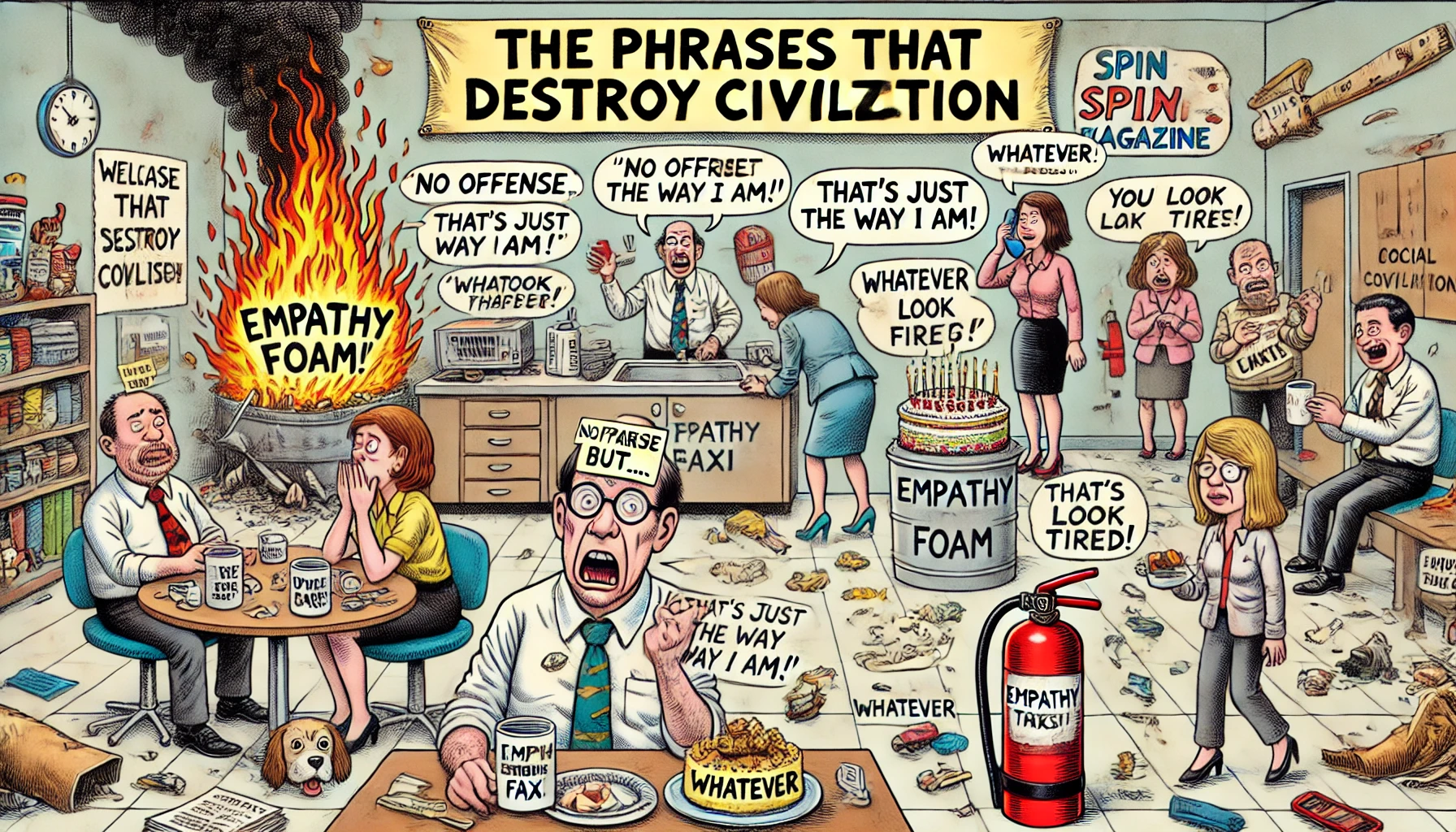
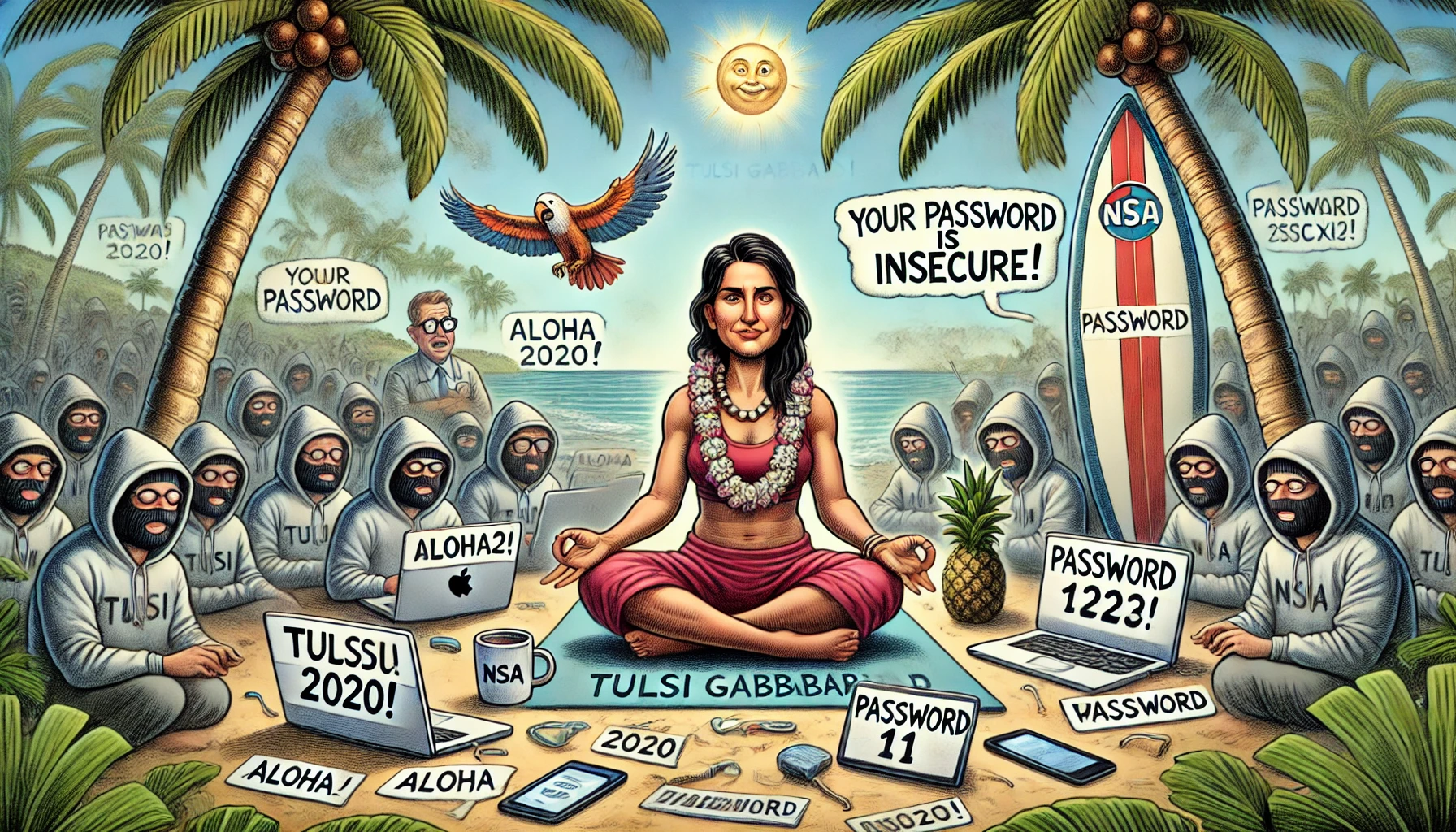

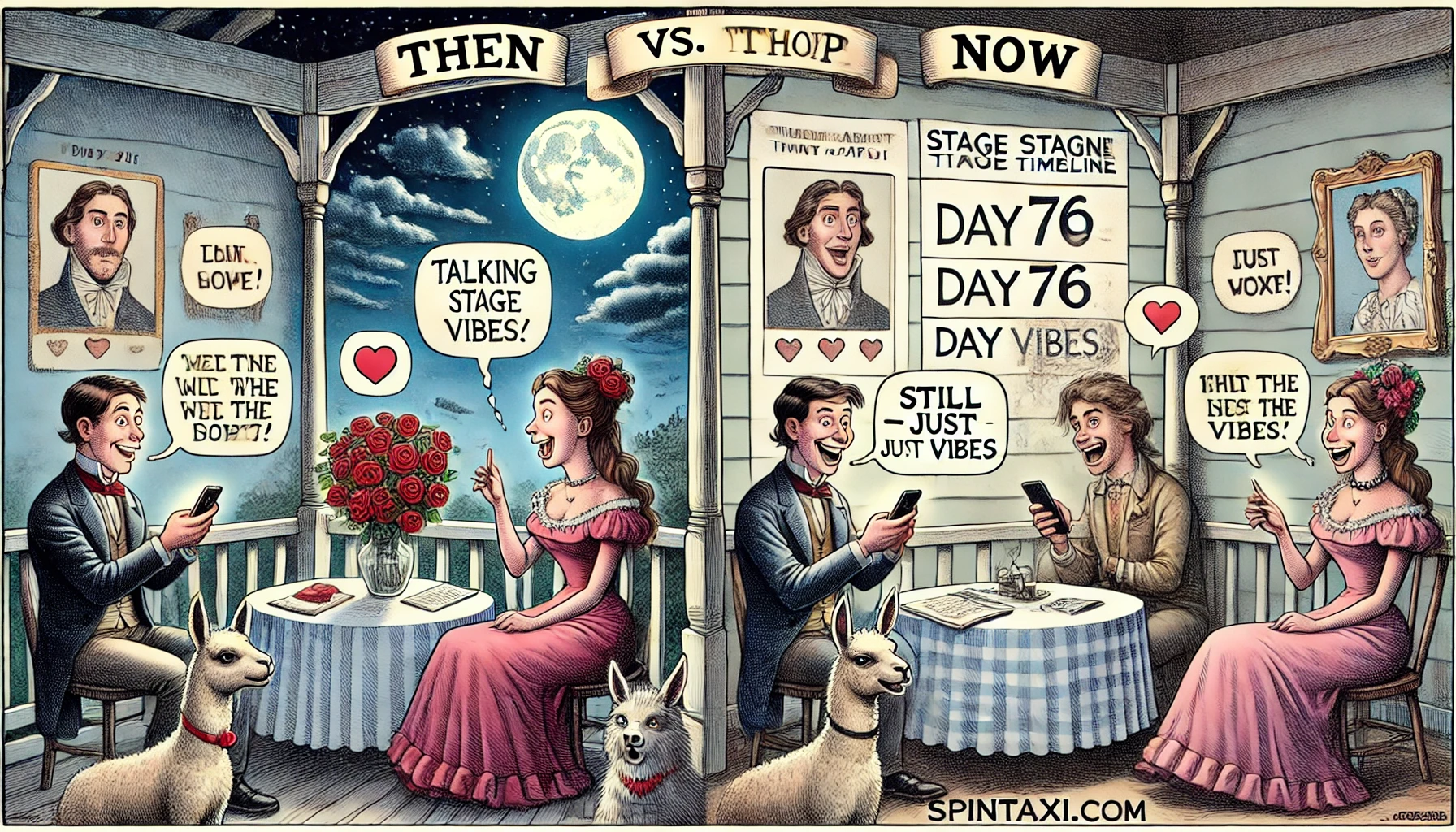

 ” become love letters. The first sign of emotional withdrawal? They remove you from their collaborative playlist.
” become love letters. The first sign of emotional withdrawal? They remove you from their collaborative playlist.
 .”
.”
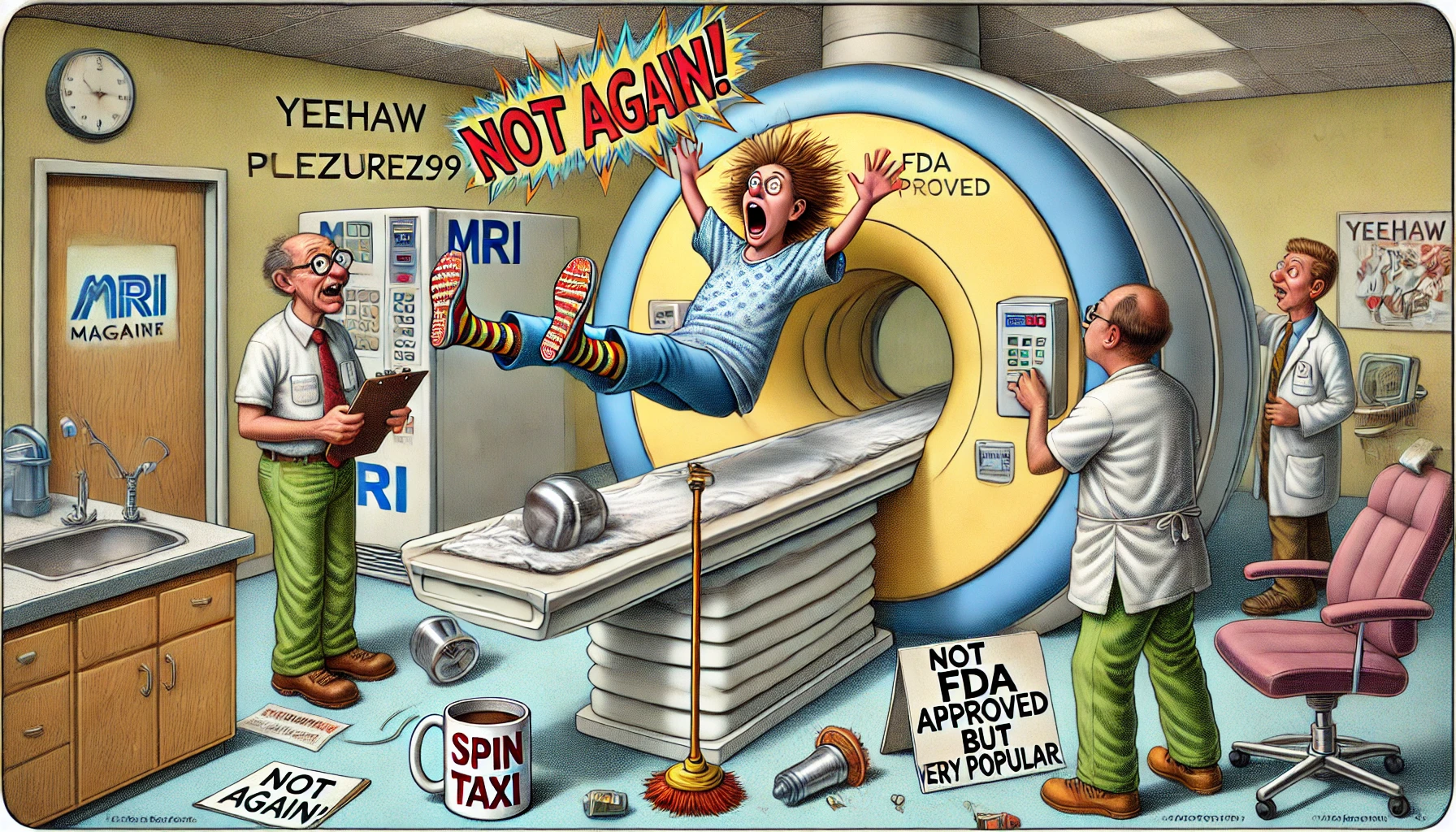



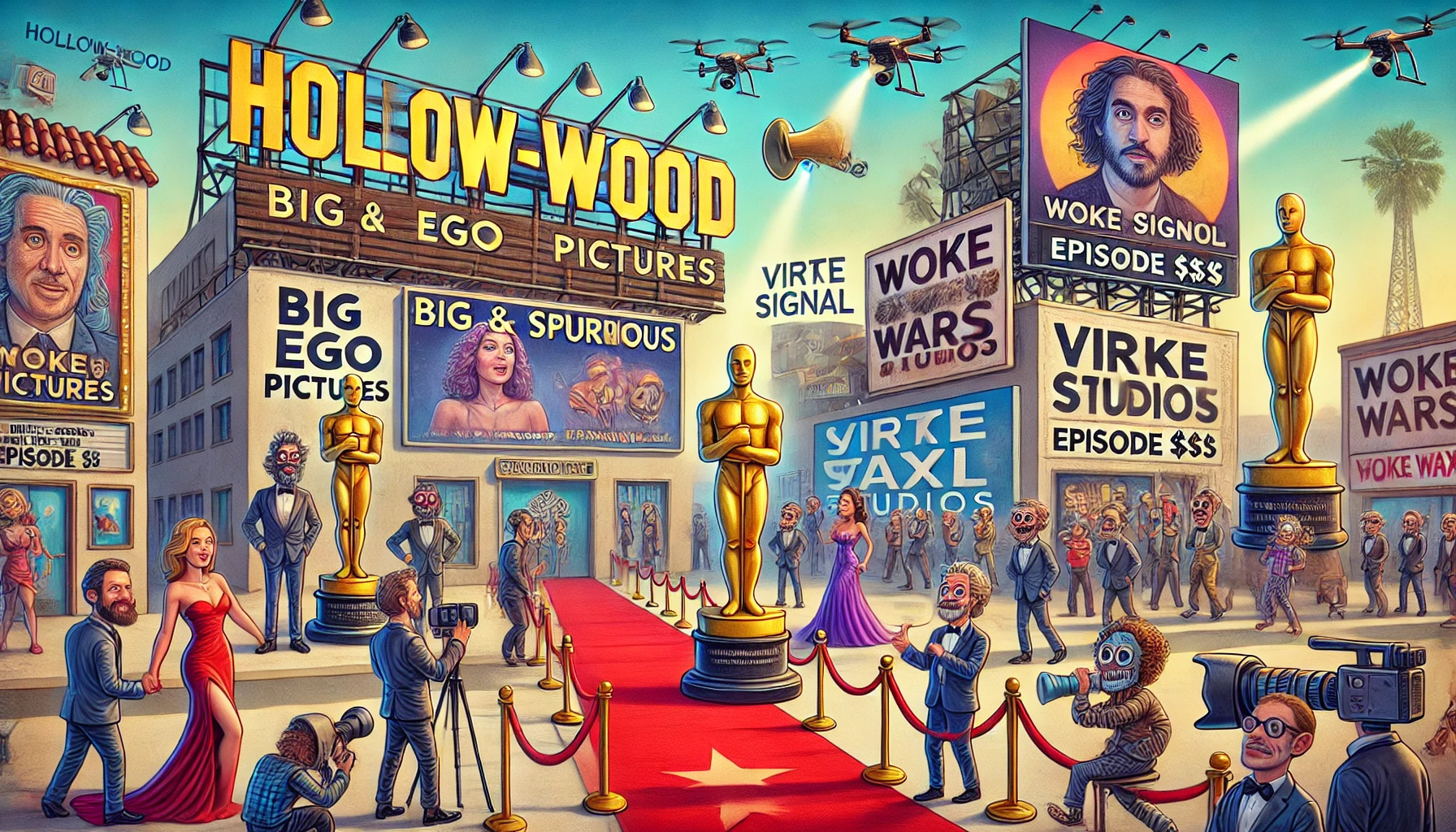


 — now with 68% fewer craters and 100% more bagel shops.
— now with 68% fewer craters and 100% more bagel shops.



 , which tells users if their password has already been leaked. It does not, however, offer suggestions to fix it—only a shrug emoji.
, which tells users if their password has already been leaked. It does not, however, offer suggestions to fix it—only a shrug emoji.
 19 Billion Passwords Later: 15 Signs the Internet Has Given Up
19 Billion Passwords Later: 15 Signs the Internet Has Given Up Left to Right, Spread Across in Comic Panels or Sections:
Left to Right, Spread Across in Comic Panels or Sections: Password Recycling Program
Password Recycling Program ‘123456’ Still Reigning Supreme
‘123456’ Still Reigning Supreme Hackers’ New Problem:
Hackers’ New Problem:  Dark Web Storage Issues
Dark Web Storage Issues Password Managers’
Password Managers’  Two-Factor, Same Password
Two-Factor, Same Password Hacker Helpdesk Now Live
Hacker Helpdesk Now Live Honest Phishing Emails
Honest Phishing Emails Cybersecurity Conferences = Group Therapy
Cybersecurity Conferences = Group Therapy Hackers Unionizing
Hackers Unionizing Password Complexity Rules Gone Wild
Password Complexity Rules Gone Wild AI-Powered
AI-Powered  Public Wi-Fi Warnings Now Honest
Public Wi-Fi Warnings Now Honest Children’s First Words: ‘Password Breach’
Children’s First Words: ‘Password Breach’ Digital Amnesia: The Rise of Passwordnesia
Digital Amnesia: The Rise of Passwordnesia